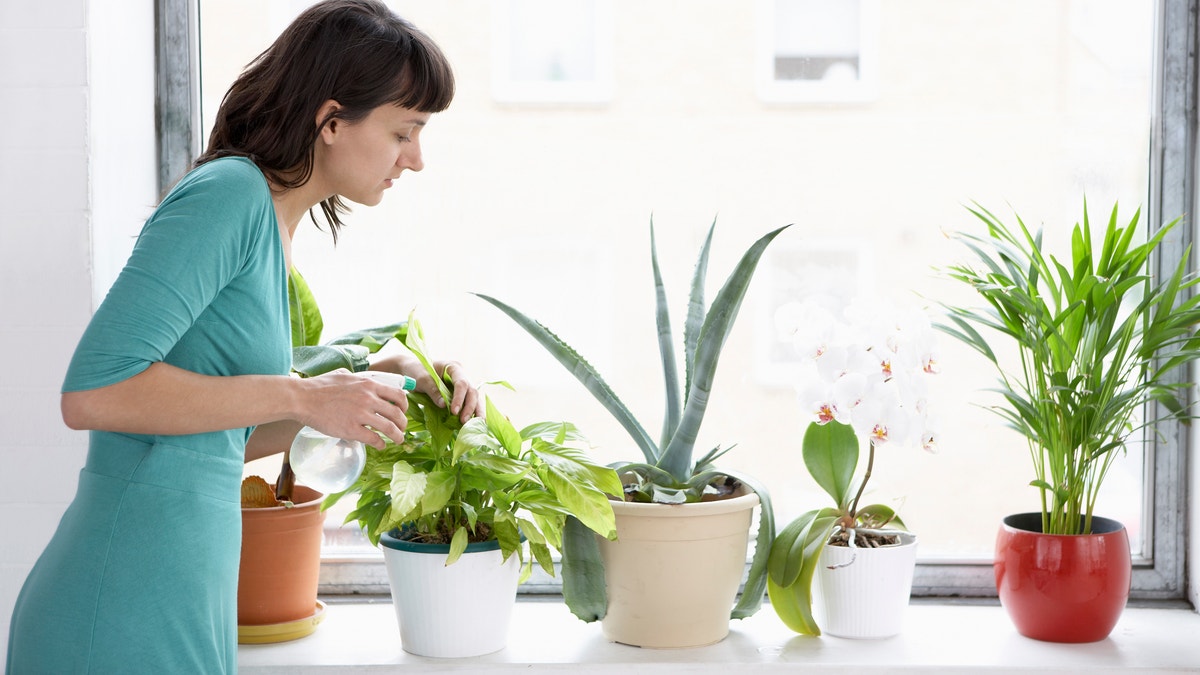
Young businesswoman sprays plants in flowerpots by window (iStock)
Houseplants add beauty to a home, but sometimes looks can be deceiving. One expert, Mussie Habteselassie, associate professor in the Crop and Soil Sciences Department at the University of Georgia, explains how a root can act as a colony for microorganisms and how an overwatered fern can be more than just an eyesore.
More than a plant
Your lovely ficus does more than add greenery to an enclosed space. It harbors a whole metropolis of bacteria, fungi and other microorganisms. “You are bringing lots of things into your home with a plant,” says Dr. Habteselassie, who specializes in soil microbiology.
In a healthy plant that gets lots of sunlight and the right amount of water, fungi help the root system extract more nutrients from its surroundings. But “if it is overwatered or is in a basement that has a moisture issue, the fungi will produce spores, and those spores can cause allergic reactions,” Dr. Habteselassie says.
For allergic people, symptoms are similar to those of hay fever. Spores can worsen asthma. Plants typically also carry bacteria, though “99% of bacteria in the roots system are beneficial,” the scientist says.
When a plant is under stress—whether from overwatering, underwatering, exposure to extreme temperatures or an assault by an unfriendly fungus, bacteria or insect—it will release chemicals in the form of a gas. “One analogy is when a skunk is attacked, it sprays to defend itself,” Dr. Habteselassie says. Humans are unable to detect the odorless gasses, though home-detection kits are available online.
